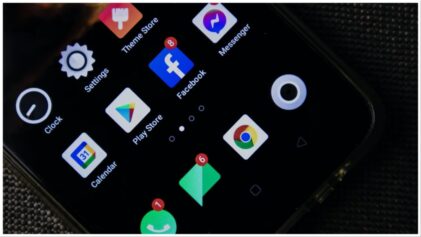Nikola Hu is running wrong. He’s loping along, leaning back as he goes. Suddenly a voice emerges from his phone: “Your cadence is low. Try swinging your legs and arms faster.” Hu’s phone knows he’s had running injuries before, so it’s hypersensitive to how his feet land on the ground. “Lean forward and land mid-foot to soften your impact,” it tells him. He obliges, and the voice comes back immediately. “Good job!”
Hu, a former Apple engineer, is jogging inside this glass-walled conference room to demonstrate Moov, a new wearable device that adds entirely new levels of meaning to the phrase “fitness tracker.” Rather than collect and chart data in the hope that simply seeing their habits will help users to be healthier, Moov instead provides a near-constant feedback loop. It’s equipped to not only tell you to move more but to move better. Whether you’re a runner, a biker, a golfer, or a yoga aficionado, Moov’s job is to turn data collection into real-time coaching that’s every bit as effective as a personal trainer.
It’s like having a coach in your face, constantly telling you not only what to do but how to do it better. Except your coach sounds like Siri, and doesn’t cost hundreds of dollars an hour. “We want to provide more actionable information for people to actually move more,” co-founder Meng Li says, “instead of just saying you should move more.” Moov comes from nearly a decade of Li and Hu’s research, which focused in part on how runners can tweak their performance to avoid injury. Hu and Li (along with Tony Yuan, the company’s third founder) worked with Harvard, Stanford and US Army researchers, plus teams of certified trainers, to develop a system that could collect and process the necessary data to make these changes as you’re running, not after you’re injured.
When it launches this summer, Moov will support five activities: running, biking, swimming, cardio boxing and weight training. Each is a separate app — for iOS, with Android coming soon — and in each case Moov is constantly critiquing your pace, your form, and your progress. If you’re doing pushups with a Moov attached to your bicep, the device will know when you’re bending your elbows incorrectly or if you’re not keeping your body properly rigid. The boxing app is like a Dance Dance Revolution spinoff, showing “perfect!” and “good!” as Hu punched the air in front of him, and urging “Follow me!” when he gave up, winded. At the end of every workout you get a report of how many calories you burned, your progress against previous workouts, and a score for how you did that day. It’s part gamification, part hard-ass coaching.
Read the full story at theverge.com


